An extract from "The History of The British Association of Urological Surgeons" by John Blandy and JP Williams.
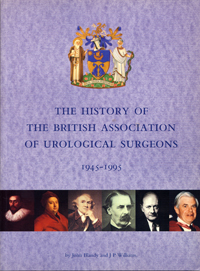
At the outbreak of the Second World War, every surgeon who could be spared went off to the services. Very soon, however, the casualties of the Blitz obliged the Navy to return the likes of Howard Hanley and others back to civilian life where there was no time to stand on ceremony or to keep to any narrow specialty. Throughout the war, however, plans were being made for a National Health Service.
Read about the NHS White Paper
Fortunately there were a few men with imagination and vision, and it was their action which led to both the foundation of BAUS and also the formation of the Institute of Urology.
It might be thought somewhat curious that there had been no previous British association for urologists. The French Urological Association had been founded in 1896 (with Félix Guyon as its first President) and the Belgian Association appeared in 1901, the year that an Association of Urology was also founded in New York (and became the American Urological Association in 1902).
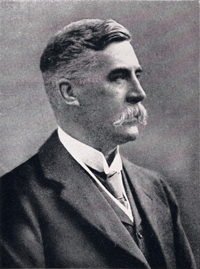 An International Association of Urology had also been started in 1907, with its first meeting in Paris in 1908 and its second in London in 1911, with Hurry Fenwick (right) as its President. After the war, this became the Société Internationale d'Urologie for whom Fenwick was President of Honour.
An International Association of Urology had also been started in 1907, with its first meeting in Paris in 1908 and its second in London in 1911, with Hurry Fenwick (right) as its President. After the war, this became the Société Internationale d'Urologie for whom Fenwick was President of Honour.
One factor in the tardy formation of BAUS, certainly so far as London and the South of England was concerned, was that a perfectly good organisation was already in existence - the Royal Society of Medicine (RSM). The RSM began as the Medico-Chirurgical Society in 1805, formed as a breakaway from the Medical Society of London. The leading lights were Blizard, Abernethy, Astley Cooper and James Yelloly. The new society flourished and received a Royal Charter in 1834 as The Royal Medical and Chirurgical Society of London. In 1907, it merged with other smaller specialist societies, whose separate independence was guaranteed with the status of "Sections" within the larger entity, and was renamed The Royal Society of Medicine.
Society in 1805, formed as a breakaway from the Medical Society of London. The leading lights were Blizard, Abernethy, Astley Cooper and James Yelloly. The new society flourished and received a Royal Charter in 1834 as The Royal Medical and Chirurgical Society of London. In 1907, it merged with other smaller specialist societies, whose separate independence was guaranteed with the status of "Sections" within the larger entity, and was renamed The Royal Society of Medicine.
Read more about the Royal Society of Medicine
Urologists held a strong influence in the RSM and this may have been one of the reasons why there seemed no need for a new Association for urologists; indeed, the second RSM President was Sir Henry Morris, a pioneer of renal surgery. Another stronger reason, however, was the ingrained, English opposition to subspecialisation within surgery.
The Section of Urology of the Royal Society of Medicine held its first meeting on 17 March 1920, with Sir Peter Freyer (right) as its first President. Freyer pointed out that the decision to establish a separate Section of Urology, rather than a Subsection of Surgery, marked:
... a distinct and healthy advance in the attitude of the surgical world in England, and particularly in London which, 'til recently, had looked askance at the idea of Urology being a distinct specialty, though this specialty had long been recognised in, I may say, every other country.
As a result, the specialty of Urology came to life.
The Grand Originals
It is difficult to say who initiated the idea that an Association of Urologists should be formed in Great Britain but it was probably Mr R Ogier Ward of St Peter’s Hospital, London.
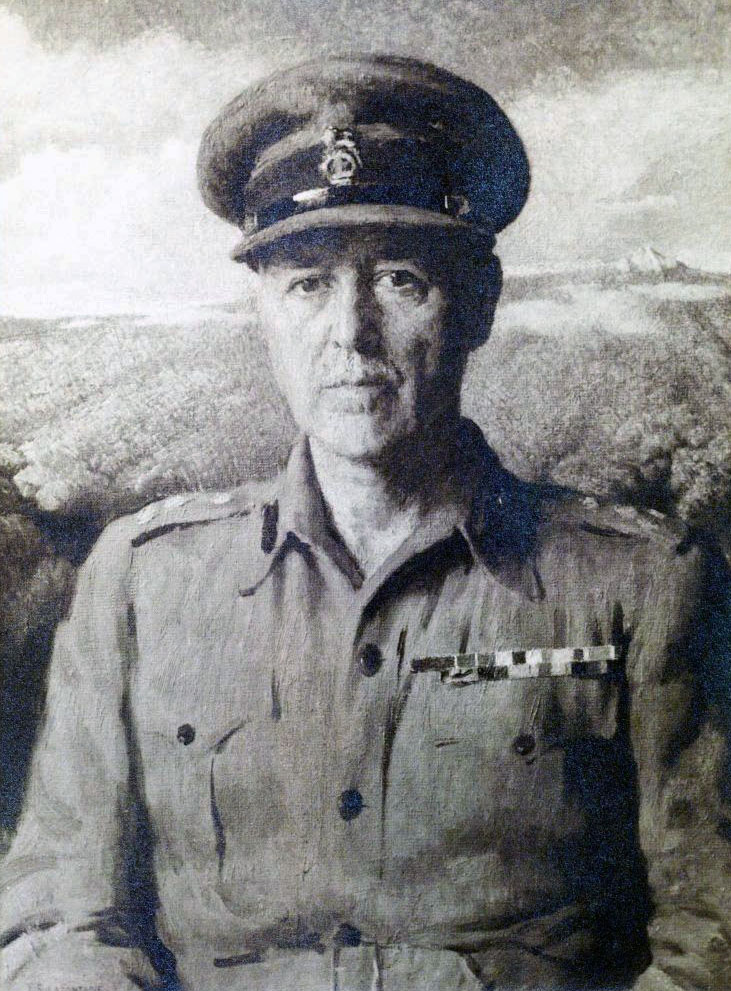
Despite the formation of a Urology Section within the RSM, there was a growing feeling amongst surgeons performing urological procedures that there was still a place for an Association specific to urological surgery.
While serving overseas during the War, Ronald Ogier Ward (right) had taken part in discussions on the Government White Paper for a National Health Service, and became concerned that there was no organisation in Britain to speak for urology; other specialties did have representation from luminaries such as Sir Alfred Webb-Johnson (President of the Royal College of Surgeons of England) and Sir Ernest Rock Carling (adviser to the Ministry of Health).
On 11 December 1944, seven men met at 22 Weymouth Street, London (Eric Riches' house); they were FMcG Loughnane, Terence Millin, Clifford Morson, Eric Riches, RHOB Robinson, Ronald Ogier Ward and Horace Winsbury-White.
As a group, they agreed to write to those surgeons who were known to be doing urology almost exclusively, suggesting:
... that an Association of Urologists be considered. The object of such an Association would be to promote the general interests of the practice of urology. In the immediate future one of its most important functions would be to represent to those responsible for the development of the medical services of the country, the ideals of urology and advise them as to what is necessary in order that a satisfactory service may be ensured.
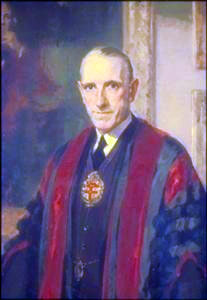 A circular letter was sent to 29 Consultant Surgeons known to be interested in urology. Twenty seven replied and all but two were in favour, although even they were open to persuasion. There was a second, exploratory meeting on 22 January 1945, and a larger meeting was organised for those to whom the circular letter had been sent as well as for the Editorial Committee of the British Journal of Urology. Sir Alfred Webb-Johnson (right), then President of the Royal College of Surgeons of England, was asked to take the Chair.
A circular letter was sent to 29 Consultant Surgeons known to be interested in urology. Twenty seven replied and all but two were in favour, although even they were open to persuasion. There was a second, exploratory meeting on 22 January 1945, and a larger meeting was organised for those to whom the circular letter had been sent as well as for the Editorial Committee of the British Journal of Urology. Sir Alfred Webb-Johnson (right), then President of the Royal College of Surgeons of England, was asked to take the Chair.
This inaugural meeting was held in the Royal College of Surgeons of England on 17 March 1945 with 37 members present. Webb-Johnson opened the meeting and Ogier Ward was elected President of the new Association; Webb-Johnson handed over the chair and Eric Riches was elected as the first Honorary Secretary. Webb-Johnson offered the new Association a home at the Royal College of Surgeons, and placed the facilities of the Joint Secretariat at their disposal, at an initial rent for the remainder of the year of £35, later to be raised to £50 per annum.
A motion was proposed by Eric Riches and seconded by Clifford Morson that:
... this meeting approves of the proposal to form a British Association of Urologists (or other title)
The motion was carried unanimously and it was decided that the actual title of the new Association would be "The British Association of Urological Surgeons (Home and Overseas)" and that its object would be "to promote a high standard in the practice of urology”
Membership of BAUS would be confined to those engaged in the practice of urological surgery. There would be three classes of members: Honorary Members, Full Members, and Associate Members. Those present at the meeting, and those who had been invited to attend, would be invited to become Foundation Members. All those present were asked to submit additional names of those they considered should have been invited to the meeting and it was agreed that suitable candidates from the Dominions should be invited to become Overseas Members.
There was to be an Annual General Meeting, close in time to the meeting of the RSM Section of Urology. The Officers of the Association (to be elected annually, the first ones for two years) would be President, Vice-President, Honorary Secretary, Honorary Treasurer and Honorary Editorial Secretary. The Council would have eight other ordinary members, two of whom should retire each year and be ineligible for re-election for one year.
The first Officers and Members of Council of BAUS were:-
- Ronald Ogier Ward - President
- Bernard Ward - Vice President
- Eric Riches - Honorary Secretary
- John Everidge - Honorary Treasurer
- Horace Winsbury-White - Honorary Editorial Secretary
- AW Adams
- David Band
- Arthur Jacobs
- JB Macalpine
- Terence Millin
- Clifford Morson
- RHOB Robinson
- Charles Wells
It was agreed that the first Annual Meeting would be on 29 June 1945. Except for the first, the Annual Meetings would be in two parts: business and scientific.
Early AGMs & Meetings of BAUS Council
The first meeting of the new Council of BAUS was duly held on 17 March 1945 at Eric Riches' home in 22 Weymouth Street - restoration of the Royal College of Surgeons following German bombing (below right) was still not complete. It was agreed that the British Journal of Urology would be the official organ of the Association and that the annual subscription for Full Members would be three guineas (two guineas for Associate Members), to include an annual subscription to the Journal of £1. 5s. 0d.
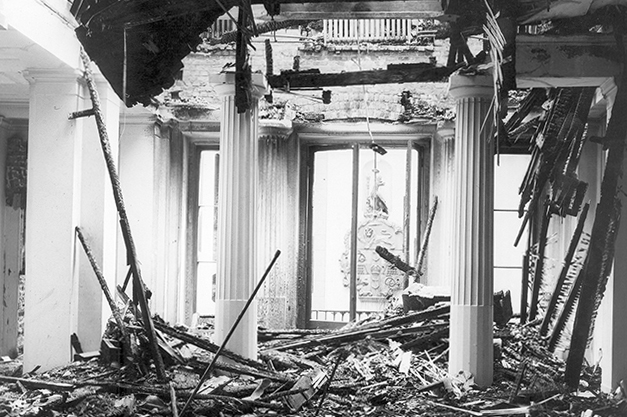
Full Membership would be limited to those who had given proof of scientific ability and practical experience in urological surgery: they would have to be sponsored by two, existing Full Members. Certain selected members from overseas would be invited to become Full Members. Associate Members would be junior surgeons working in a Department of Urology, or other surgeons who were making a special study of urology. The first Honorary Members were: Sir Alfred Webb-Johnson (Middlesex Hospital), Sir Girling Ball (St Bartholomews Hospital), Cyril Nitch (St Thomas's Hospital), Sir Hugh Lett (The London Hospital), Henry Wade (Edinburgh Royal Infirmary) and Ralph Thompson (Guy's Hospital).
The second meeting of Council was on 3 May 1945, at which further Honorary Members were agreed: Sir Charles Ball, Surgeon Rear-Admiral Gordon Gordon-Taylor, Professor George Grey Turner and Surgeon Rear-Admiral RJ Willan.
Letters were received from the President of the Royal College of Surgeons, from the Director General of Emergency Medical Services (Sir Francis Fraser), and from Mr RJ Silverton, of Sydney Australia, with congratulations on the formation of BAUS. Another 27 Foundation Members were elected as well as 14 Associate Members.
The first Annual Meeting was held on 29 June 1945 at the Royal College of Surgeons. Ogier Ward presided at a dinner, after which 38 members attended the business meeting. Professor Bernard Fey of Paris was invited to become an Honorary Member.
From the very beginning, Ogier Ward addressed the two most urgent needs of urology in the face of the impending NHS: manpower and training:
- how many urologists did the country need?
- how should they be trained?
These same, two questions have continued to occupy BAUS ever since.
 Manpower
Manpower
A sub-committee was set up to address the question of manpower requirements and, by April 1946, had sent the draft of its Urological Survey to the Ministry of Health. This Urological Survey of Britain emphasised three "General Considerations":
- that urology was highly developed and expensive from the point of view of equipment,
- that specially trained nursing was necessary and
- that many urological patients presented as emergencies
Read the Urological Survey of Britain
It recommended that, in the new Health Service:
... important Hospitals (must) contain Urological Departments, and that the staff of certain smaller hospitals (should) include surgeons competent to render the correct immediate treatment for any urgent cases, and to decide that subsequent transfer to the fully equipped and staffed Urological Department will presently be necessary
Urological departments were to have their own beds. The survey went on (two years before the inception of the NHS) to envisage University Centres, Area Group Hospitals, Area Hospitals and sub-Area Hospitals - the concept of the present day "hub and spoke". One tactical concession was made to the-prevailing views on sub-specialisation within Surgery with the thought that it was:
... not essential that a urologist should be engaged solely in urology, but all surgeons who are to be entitled to call themselves Urologists should be competent, in the opinion of their colleagues, to have charge of a Urological Department
The plan also went on to envisage a structure for academic urology, including the appointment of Professors of Urology in certain University Centres.
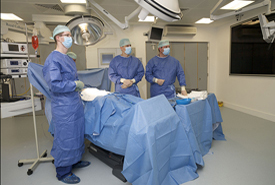
Training
From the outset the Royal College of Surgeons sought the views of the new Association on the training of Consultants in Urology. A second sub-committee was set up in March 1946 which recommended that special training in urology would be needed, in addition to training in General Surgery at Registrar grade.
Both these documents were discussed and ratified at the Annual Meeting of BAUS in June 1946 and the rest, as they say, is history.
More about training & academic urology
← Back to History of BAUS Room